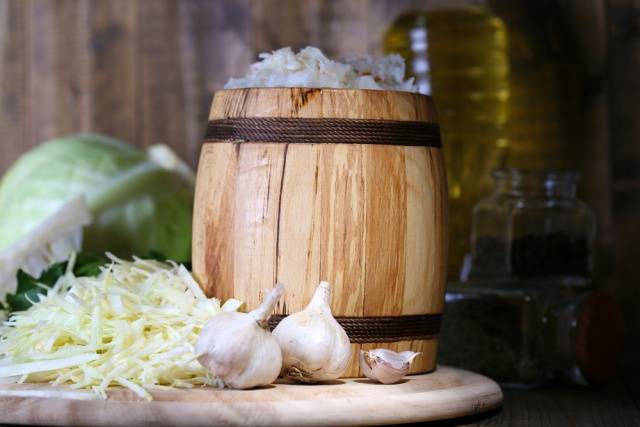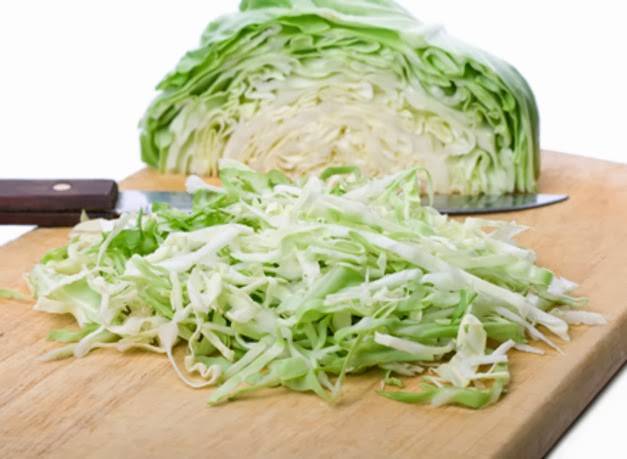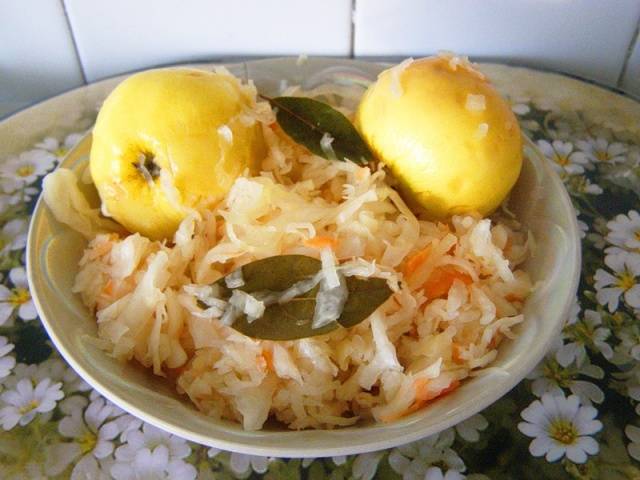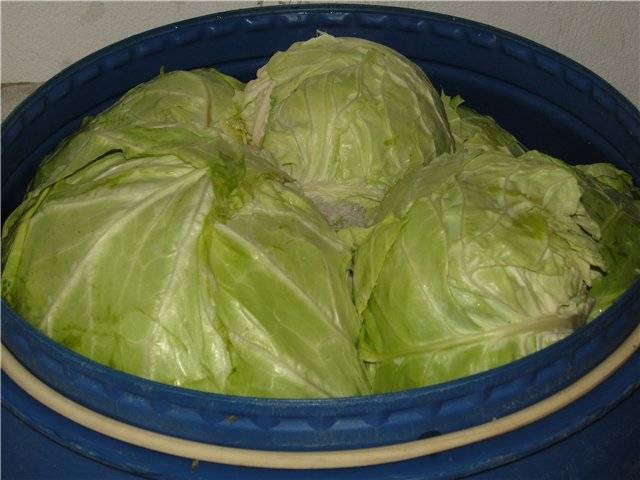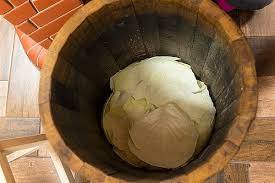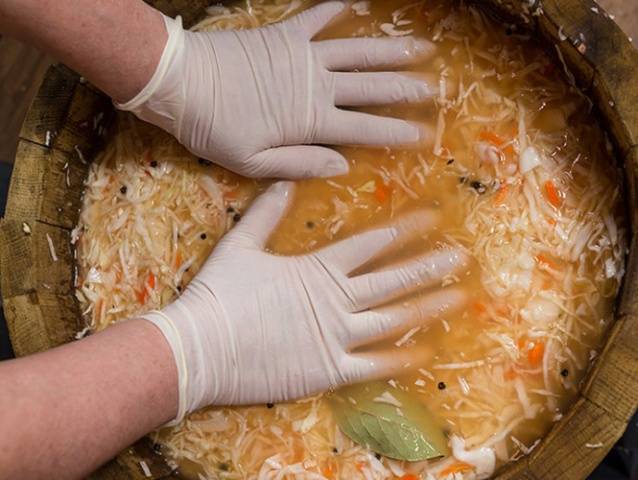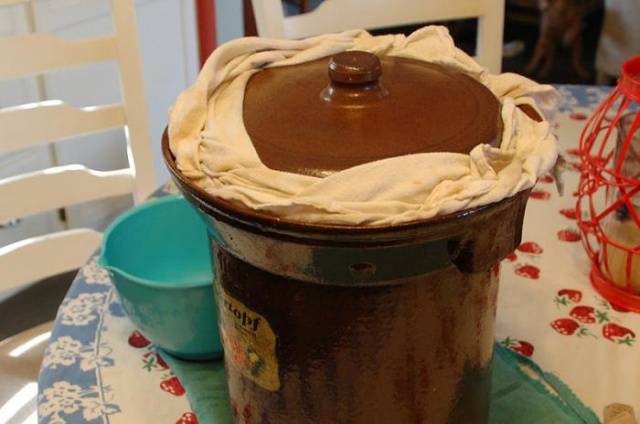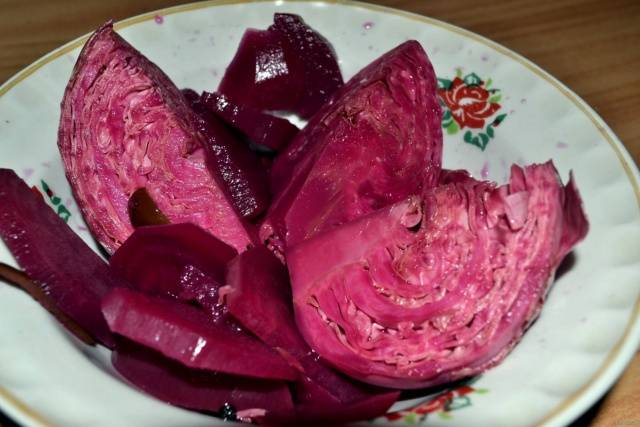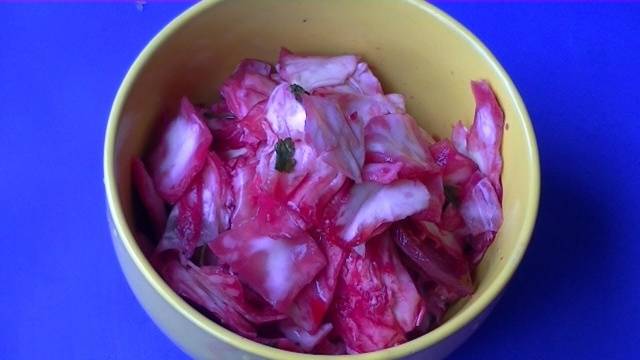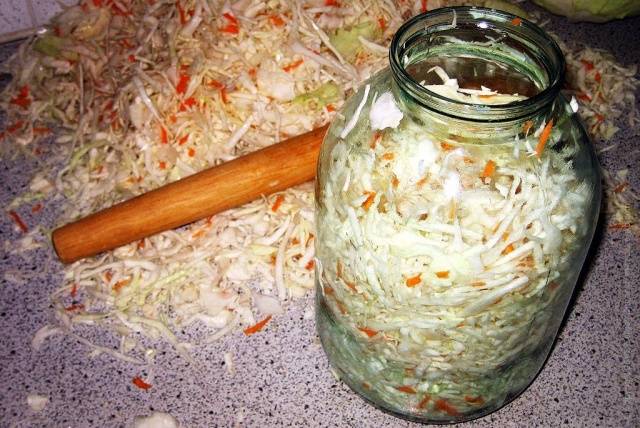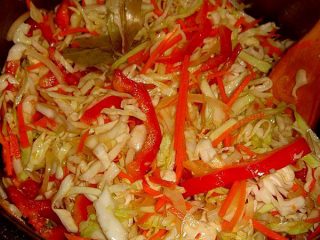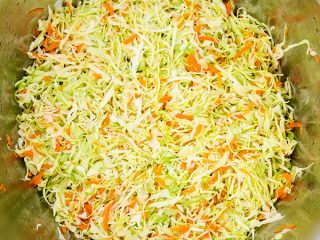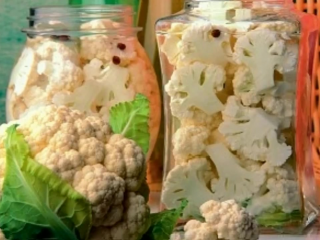Content
Most people are very fond of sauerkraut. How nice it is in winter to get a jar of your own prepared workpiece. This sour appetizer goes well with fried potatoes, pasta and various side dishes. Our grandmothers fermented cabbage in large wooden barrels, thanks to which it could be stored for quite a long time. Now it is customary to cook a snack in small portions so that it does not have time to spoil. How is preparing sauerkraut for the winter? In this article, we will look at some tips to help you make your recipe even tastier and healthier. We will also see recipes for winter preparations with photos and step-by-step instructions.
What is sauerkraut useful for?
Each vegetable is useful in its own way and contains certain vitamins. White cabbage contains vitamin U, which is also called methylmethionine. It is he who helps the body fight stomach ulcers and gastritis. In general, this vegetable is very good for the intestines.
Sauerkraut contains a huge amount of vitamin C. The most interesting thing is that even after six months, its concentration does not decrease. No other vegetables have this ability. Even during heat treatment, vitamin C does not evaporate, but is reborn into ascorbic acid. This is because it is found in the vegetable in the bound form of ascorbigen.
In addition, the preparation has a positive effect on the immune system and the body as a whole. Cabbage helps fight stress, all kinds of infections and intoxication of the body. It is rich not only in vitamin C, but also contains other trace elements, amino acids and minerals. In addition, it contains a lot of potassium, niacin and B vitamins. And the fiber contained helps to remove toxins and toxins from the body.
Preparation of products for harvesting
Lactic acid acts as a preservative in this dish. It forms on its own when lactic acid bacteria that are on the head begin to process sugar. During alcoholic fermentation, carbon dioxide and alcohol are produced. But so that the decay process does not exactly start, such preservatives are not enough. Therefore, salt is also used during cooking.
You should choose fairly dense, rather than loose heads of cabbage. For this, white cabbage of late and medium late varieties is suitable. Each head must weigh 800 grams or more. There may be small defects on the vegetable, but not more than 5% of the total head. You can list all the varieties suitable for fermentation for a long time, but you should focus on those that are grown in your region. The main thing is that they are late.
Sauerkraut recipe for the winter
A blank can be composed of different ingredients. But to make it tasty and crispy, you must follow the basic rules and proportions:
- For pickling, we take only late and mid-late varieties of cabbage. Early vegetables have a loose head structure and green leaves. Such heads of cabbage contain an insufficient amount of sugar, which worsens the fermentation process.
- Many recipes also include carrots. In such cases, it is necessary to follow the exact proportions. The weight of the carrots in the salad should be only 3% of the total weight of the cabbage.If the salad contains 1 kg of cabbage, then we take respectively 30 g of carrots.
- For harvesting, only coarse salt is taken. Iodized is not suitable for these purposes.
- Salt is taken from 2 to 2.5% of the total weight of vegetables. It turns out that 1 kg of cabbage will need about 20-25 grams.
- To make the preparation more useful, you can use coarse sea salt.
- You can also add various vegetables, fruits and other additives to the salad. Some people throw cranberries, apples, lingonberries, beets, caraway seeds and bay leaves into the blank. Everyone can determine the amount of these ingredients to their liking.
How to ferment cabbage correctly
Sauerkraut Is a quick and fairly easy process. But if you miss at least one stage, then the workpiece may simply not work out. Now let's look at the whole process step by step:
- The first step is to clear the heads of cabbage from the top green or rotten leaves. All frozen or damaged parts are cut off. You should also remove the stump.
- Next, you need to determine in what way to ferment the cabbage (whole or in chopped form). It is not very convenient to ferment whole heads, so most people pre-cut the vegetable.
- Then peel and coarsely grate the carrots. A Korean carrot grater is also suitable.
- Now the chopped cabbage is poured onto the table and rubbed well with the addition of salt. All other additives are also added at this stage. You need to grind the salad until it lets out the juice.
- Next, you need to prepare a container for storing the workpiece. A wooden barrel or enamel saucepan of the correct size will work best. In this case, the enamel should not be damaged.
- Cabbage leaves are spread at the bottom of the container. Then the prepared salad is placed there. You need to lay out the workpiece in layers from 10 to 15 cm.After each layer, the salad is thoroughly tamped.
- Some housewives who make the workpiece in large containers like to put it inside whole head of cabbage... Then you can make wonderful cabbage rolls from such cabbage.
- Then the workpiece is covered with leaves and a clean towel, a wooden circle is placed on the barrel, and on top oppression.
- After 24 hours, the selected brine should appear on the surface.
- For the fermentation process to take place, the container is kept at room temperature.
- During fermentation, bubbles and foam should emerge on the surface, which must be collected.
- Further, it is necessary to release gas from the workpiece. If this is not done, then all efforts will be in vain and the cabbage will simply deteriorate. To do this, every day or after 2 days, the cabbage is pierced with a wooden stick to the very bottom in several places.
- When the cabbage settles noticeably, it is necessary to remove the oppression from it and remove the leaves and the upper darkened layer of the cabbage. Then the wooden circle is washed using baking soda, and the towel is washed in plain water and in a saline solution. After that, it is squeezed out and the cabbage is again covered. Next, put a wooden circle and lighter oppression. At the same time, the brine should cover the circle.
- If the required amount of brine has not been released, it is necessary to increase the size of the load.
- The workpiece is stored in a cool room with a temperature of 0 to 5 ° C.
- You can determine readiness by color and taste. A properly prepared salad should have a slightly yellowish color, mouth-watering smell and sour taste.
How to make sauerkraut with beets and peppers
To prepare such a blank, we need:
- cabbage - 1 head of cabbage;
- beets - 1 large or 2 medium;
- medium-sized carrots - 2 pcs.;
- sweet bell pepper - 3 pcs.;
- dill - 1 bunch;
- garlic - 4 cloves;
- black peppercorns - from 10 to 15 pcs.;
- granulated sugar - 1 tbsp. l .;
- citric acid - 1 tbsp. l .;
- table salt to taste.
The preparation of the salad begins, of course, with cabbage. First of all, it is washed and cleaned of damaged leaves. Then it is cut into 8 or 12 straight pieces, as shown in the photo below. The cabbage is set aside and proceeds to beets, peppers and carrots. The peppers are washed, cored and cut into strips.Carrots and beets are peeled, washed thoroughly under running water and cut in the same way as cabbage. You should get thin plates.
Then all the vegetables are laid out in layers in a prepared container, each layer, sprinkled with granulated sugar and salt. Then you need to boil water, pour citric acid into a container with vegetables and pour boiling water over the entire contents. The water should completely cover the vegetables. Then the workpiece is covered with a clean towel and the oppression is laid.
Spicy sauerkraut recipe
To prepare sauerkraut using this recipe, you need to prepare the following ingredients:
- white cabbage - 4 kg;
- beets - 150 g;
- hot red pepper - half a pod;
- garlic - 50 g;
- horseradish (root) - 50 g;
- fresh parsley - 50 g;
- water - 2 l;
- granulated sugar - 100 g;
- food salt - 100 g.
Now let's take a closer look at the step-by-step recipe, how to ferment cabbage with horseradish and garlic. Wash the head of cabbage and cut into large slices. Next, grate the horseradish root. Peel the garlic, wash it and pass it through a press. You can also finely chop the garlic with a knife. Peel the beets and cut into cubes. Wash parsley under running water and chop finely with a knife. Hot red peppers need to be rinsed and cored and all seeds removed. It is better to do this with gloves, after which you need to thoroughly wash your hands with soap and water. All prepared ingredients are mixed.
Next, we start preparing the brine. To do this, boil 2 liters of water. After boiling, add sugar and salt in the required amount to the pan. The solution is boiled a little and cooled. Pour the vegetable mixture with the prepared brine. Then they put oppression on top and keep the cabbage in this form for at least 2 days in a warm room. After the fermentation process subsides a little, the container is transferred to a colder place.
In what ways is sauerkraut prepared for the winter
Cabbage can be fermented dry or wet. The dry method differs in that at first the vegetable is simply mixed with spices and carrots, and then the mass is tamped very tightly into the prepared container. You can also lay out various fruits and vegetables or berries between the layers (according to the recipe). Sugar and salt are added to the brine, which must be boiled and poured over the tamped vegetables. How to prepare such a pickle is described a little above.
In the second case, you need to grind chopped cabbage with salt so that the juice begins to stand out. Then the workpiece is mixed in parts with carrots and put everything in a large container. It is better not to spread the whole mixture at once, otherwise it will be difficult to tamp it. If the recipe contains additional vegetables or fruits, then we put them in portions between the layers of cabbage.
The workpiece is considered finished, but not completely finished, when the foam stops forming. Such a salad can be safely eaten. But in order to bring the workpiece to full readiness, you need to hold the container in a cool place for another month. In this case, the temperature should be no lower than 0 and no higher than + 2 ° C. The salad can be stored throughout the winter if you follow all the step-by-step instructions.
Conclusion
As we could see, souring cabbage for the winter is not at all difficult. This is a quick and pleasant process that does not require special preparation and large material costs. Everyone can afford to cook such a tasty and healthy snack for the winter. Moreover, now you know exactly how to properly ferment cabbage at home.

